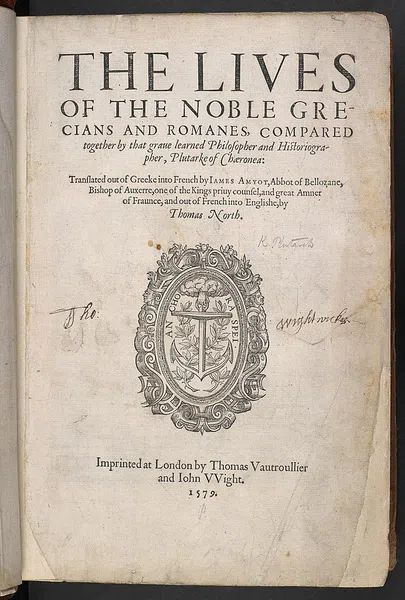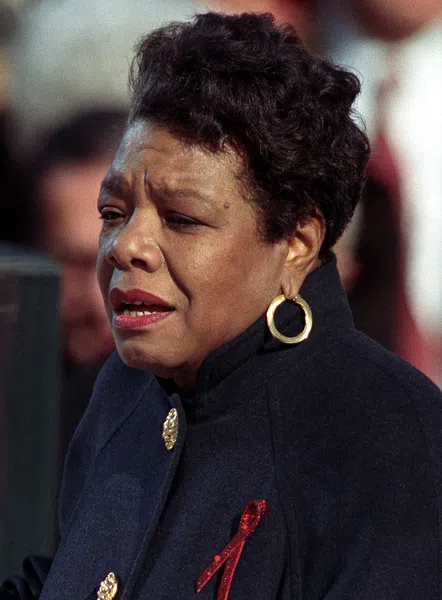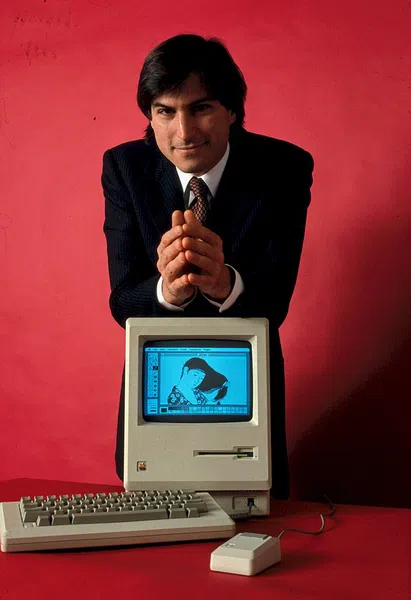Biography meaning
The word 'biography' is a combination of the Greek words 'bios', which means 'life', and 'graphia', which refers to 'writing'. Simply stated, this means that a biography is a written account of someone else's life.
Biography: a detailed written account of a real person's life authored by a different person.
The subject of the biography, that is, the person whose life the biography is describing could be a historical figure, a celebrity, a politician, an athlete or even an ordinary person with a life full of stories worth telling.
A biography is a factual recording of a person's life from their birth to death (or the time that the biography is being written). It contains detailed descriptions of the person's childhood, education, relationships, career and any other key touchstone moments that defined that person's life. Hence, a biography is a non-fictional form of writing.
Non-fiction: Literature that is based on real-life events and facts, rather than imagination.
The first-ever biographies can be traced back to Ancient Greece and Rome, where people celebrated gods as well as notable men by writing about their personalities and life's accomplishments. Plutarch's Parallel Lives, published about 80 A.D, is the earliest ever recorded biographic work written solely about humans. In this work, Greeks are paired with Romans and are held up against each other and compared, with one being a good example to follow whilst the other's life serves as a cautionary tale

Fig. 1 - The first-ever biography- Parallel Lives (80 A.D.) by Plutarch
Difference between biography and autobiography
A biography is a written account of a person's life written by someone else. In this case, the subject, that is, the person the biography is written about is NOT the author or the narrator of the biography. Usually, the author and narrator of a biography, also known as the biographer, is someone who takes a great deal of interest in the subject's life.
A biography is usually written in a third-person narrative voice. This distance from the subject and their experiences allow the biographer to view the subject's experiences in the larger context of their life by comparing them to other experiences or analysing the impact of certain experiences on the subject's personality and life.
Now that we know what a biography is, what is an autobiography? The hint lies in the word 'auto', which is a Greek word meaning 'self'. That's right! An autobiography is a self-written biography.
Autobiography: a written account of a person's life, written by the person themselves.
In an autobiography, the subject of the biography and the author are the same person. Hence, an autobiography is usually when the author is narrating their own life story, in the way they experienced it themselves. They are written in first-person perspective.
Here is a table summarising the difference between a biography and an autobiography:
| Biography | Autobiography |
| A written account of a person's life written by someone else. | A written account of a person's life written by the person themselves. |
| The subject of a biography is NOT its author. | The subject of an autobiography is also its author. |
| Written from a third person's perspective. | Written from a first-person perspective. |
Features of a biography
Although every biography is different in the sense that its content is unique to the life of its subject, all biographies have several building blocks.
Subject
The success of a biography is largely dependent on its subject.
While choosing a subject, biographers must consider why this person's story would be of interest to the reader. Perhaps this person was extremely successful, or perhaps they discovered something new? Maybe they've had experiences that are unique or faced struggles and conquered them in a way that is inspiring and motivational. Biographies are all about making the mundane and everyday sound interesting and new.
Research
While reading a biography, readers should get the sense that they are reliving the life of their subject. This requires a great deal of detail and accuracy from the biographer, who must gather enough information on their subject to paint a complete picture of their life.
Biographers most often use primary sources such as interviews with the subject and their family and friends to provide first-hand accounts of the subject's life. However, in cases where the subject is dead, the biographer may use their diary, memoirs, or even secondary sources such as news stories and articles about them.
Key background information
The most essential part of research for a biographer is gathering all the key background information about their subject. This includes the following factual details about their subject:
The date and place of their birth Their family historyTheir language, culture and traditionsKey stages in their education and careerKnowledge and history about the various settings in the biography- the subject's birthplace, home, school, office etc. Relationships with other people (and relevant details about these people) Early life
Most biographies begin with a description of the subject's early life, which includes their childhood and early education, their upbringing, stories about their parents and siblings and their familial traditions and values. This is because the early developmental stages of a subject's life usually play a significant role in shaping later events in their life, their personality and worldview.
Professional life
Just as important as it is to share the subject's early life, biographers place special emphasis on their subject's career. This is because this is the part where the subject's contribution to the world is discussed. This could serve as a major inspiration for people who are building a career in the same field, as readers could gain insight into the subject's motivations, secrets, successes and losses throughout their professional journey.
Structure
Typically, biographies follow a chronological order where they begin with the subject's birth and end with either their death or the present time. However, flashbacks are often used to show connectivity between the subject's early experiences and adulthood.
Emotions
A biographer is not only responsible for presenting a factual recording of events in their subject's life but is also responsible for adding life to these moments by elaborating on the person's experiences and intimate thoughts and feelings during these moments. The best biographers are able to recreate their subject's life in the way that that person lived it.
Oftentimes, the biographer even provides their own opinions on the events they are detailing in the biography, perhaps to explain how these moments were significant to the subject and should be of significance to the reader.
Moral
Usually, a biography carries with it an important life lesson that it imparts to its reader. Biographies, where the subject has encountered several hardships, may advise the reader on how to overcome adversity and deal with failure. Biographies of successes can teach the reader how to achieve their goals and may become a source of inspiration and motivation for them.
Biography format
While all biographies work to present the life of real people, biographers can follow different formats while writing them. A few important ones have been discussed below.
Modern biography
A modern or 'standard' biography details the life span of someone who is still alive or who passed away very recently. Usually, it is done with the permission of the subject or their family.
Journalist Kitty Kelley published His Way (1983), a highly detailed biography on the American singer and actor Frank Sinatra. However, this biography was unauthorised by Sinatra, who tried to stop its publication but failed. The biography consists of government documents, wiretaps, and interviews with Sinatra's colleagues, family and friends and was considered extremely revealing and controversial.
Historical biography
Historical biographies are written on historical figures who have passed away and seek to highlight their life and contributions during the time in which they were alive. Sometimes they provide a look into the personal lives of famous historical figures or even shine the spotlight on people who were not recognised for their contributions.
Alexander Hamilton (2004) by Ron Chernow is a famous example of a historical biography written about Alexander Hamilton, one of the revolutionary founding fathers of the United States. The biography details Hamilton's contribution to America's birth by painting him as a patriot who made countless sacrifices to lay the foundations of a prosperous and powerful country.
In fact, no immigrant in American history has ever made a larger contribution than Alexander Hamilton.
- Ron Chernow
Critical biography
Critical biographies usually tend not to focus as much on the personality or personal life of their subjects but are centred around their professional work, which is evaluated and discussed in the biography. In case matters where the subject's personal life has intervened in their work, these are then addressed as inspirations or motivations behind their work. These biographies usually contain less description and storytelling from the biographer. Instead, the biographer's skill is required in selecting, labelling, and arranging all the work created by their subject.
In 1948, Doughlas Southall Freeman won his second Pulitzer Prize for publishing the most comprehensive biography of George Washington (1948-57). The entire biographic series consists of seven well-researched volumes, each containing objective facts on George Washington's entire life span.
Autobiography
As discussed before, this is a self-written biography where the author narrates stories from their own life. The autobiographer is the subject and the author of the biography.
I Know Why the Caged Bird Sings (1969) is the first edition of a seven-volume autobiographical series written by Maya Angelou. It details her early life in Arkansas and her traumatic childhood, where she was subjected to sexual assault and racism. The autobiography then takes us through each of her multiple careers as a poet, teacher, actress, director, dancer, and activist and the injustices and prejudices she faces along the way as a black woman in America.

Fig. 2 - Maya Angelou, the author of I Know Why the Caged Bird Sings (1969)
Fictional biography
Yes, you heard that right! There are some instances where writers incorporate fictional devices in biographies to create biographies that are more entertaining rather than informative. Writers of this style may weave in imagined conversations, characters and events in their biographies. Sometimes, writers may even base an entire biography on a fictional character!
Z: A Novel of Zelda Fitzgerald (2013) is a fictionalised biography where writer Theresa Anne Fowler imagines the life of Zelda Fitzgerald and F. Scott Fitzgerald from the perspective of Zelda herself and details the glamourous yet turbulent married life of the couple that defined the Jazz Age (1920s).
Biography examples
Biographies can seem extremely tedious and uninteresting to those who enjoy fictional writing. However, here are a few notable examples of biographies that employ creative storytelling techniques to both inspire and entertain their readers.
Steve Jobs (2011) by Walter Isaacson
This is one of the most classic examples of a well-researched and written biography. This biography by renowned biographer Walter Isaacson is based on more than 40 interviews over two years with Steve Jobs, the co-founder of Apple, alongside other first-hand accounts provided by Jobs' family, friends, colleagues and even competitors. The biography takes readers through Jobs' creative journey and passion for technology and provides inspiring lessons on entrepreneurship, innovation, leadership and success.

Fig. 3 - Steve Jobs in 1984 with his first-ever Macintosh Computer
The Immortal Life of Henrietta Lacks (2010) by Rebecca Skloot
This biography is the story of Henrietta Lacks, a poor black woman whose cells were taken for medical research in 1951 without her consent. Lacks' cervical cancer cells were later discovered to be an immortal cell line that could be used to study the effects of poisons, drugs, hormones and viruses on cancer cells without human trials.
This biography honours Henrietta's contribution to science and serves as an example of how literary works can start a discussion on ethical issues regarding race and class in medical research.
Into the Wild (1996) by Jon Krakauer
Christopher Johnson McCandless disappeared in 1922 while hitchhiking in Alaska. Later, his dead body was found in an abandoned bus on the same hiking trail with no obvious cause of death. So a year later, biographer Jon Krakauer retraced McCandless' steps by going through anecdotes from his journal and pictures in his camera to hypothesise what led McCandless to undertake such a dangerous journey that ultimately resulted in death. Through the course of the biography, Krakauer realises the many parallels between McCandless' personality and childhood experiences and his own. The biography discusses the struggles of finding oneself whilst being accepted into society.
Biography - Key takeaways
- A biography is a detailed written account of a real person's life authored by a different person.
- A biography is a written account of someone's life by someone else, whereas an autobiography is a self-written account of one's own life story.
- These are the features that make a biography:
- Subject
- Research
- Key background information
- Early life
- Professional life
- Structure
- Emotions
- Moral
- These are the different formats a biography can be written in:
- Modern biography
- Historical biography
- Critical biography
- Autobiography
- Fictional biography
- A few notable examples of biographies are:
- Steve Jobs (2011) by Walter Isaacson
- The Immortal Life of Henrietta Lacks (2010) by Rebecca Skloot
- Into the Wild (1996) by Jon Krakauer
- Alexander Hamilton (2004) by Ron Cherno
References
- Fig. 1 - Public domain: https://commons.wikimedia.org/wiki/File:Plutarch%27s_Lives.jpg
- Fig. 2 - Public Domain: https://commons.wikimedia.org/wiki/File:Angelou_at_Clinton_inauguration_(cropped_2).jpg
- Fig. 3 - Public domain: https://commons.wikimedia.org/wiki/File:Steve_Jobs_and_Macintosh_computer,_January_1984,_by_Bernard_Gotfryd-_border_cropped.jpg
Similar topics in English Literature
Related topics to Literary Devices










